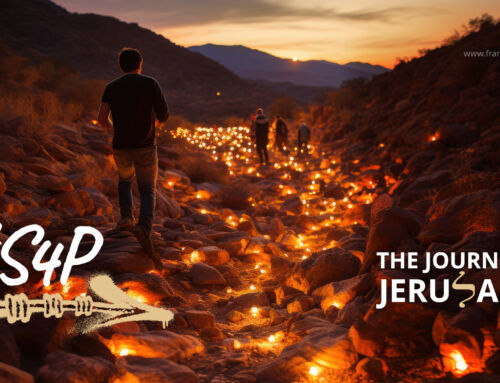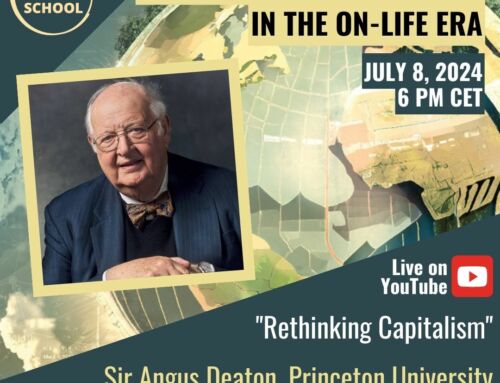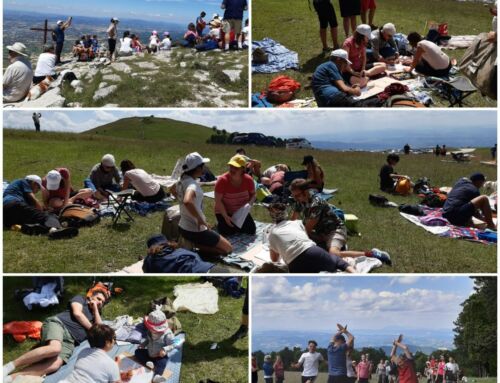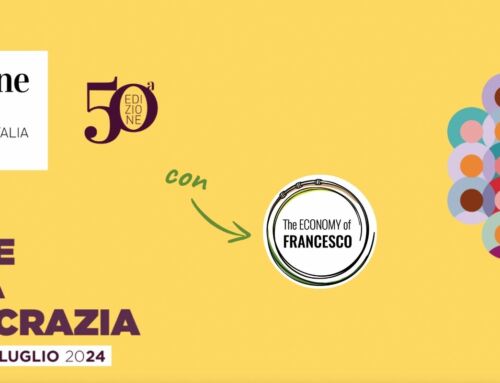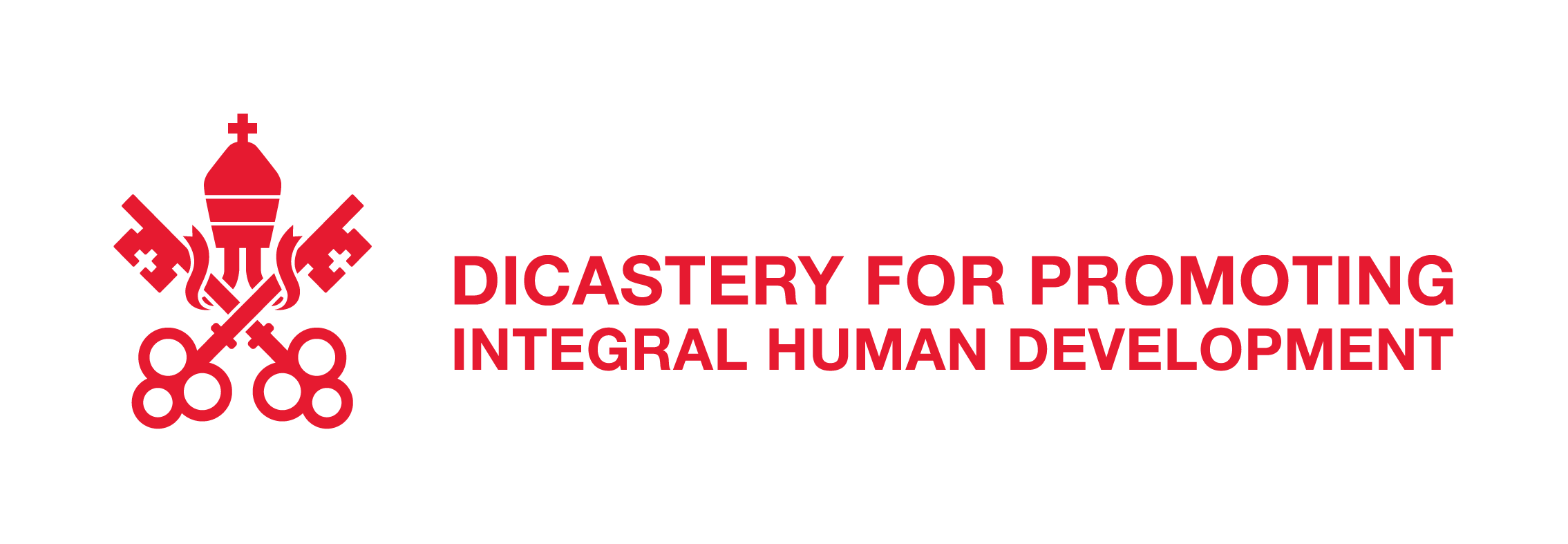Blindspots in Economics
A reflection by EoF Academy
The EoF Academy is an international group of academics and researchers who work to create, implement, and realize the Economy of Francesco. Today we do not have time to introduce you individually to our 46 researchers, our joint projects, seminars, and activities. Instead, we will try to give you the EoF Academy’s collective answers to the last questions that were posed to Professor Acemoglu: what are the blind spots of the knowledge surrounding economic issues? What are the topics, groups, and methodologies excluded or marginalized? What are we, as the EOF Academy, doing to start an active and generative change? We have discussed these issues, and as you can imagine, as academics, we came up with many answers.
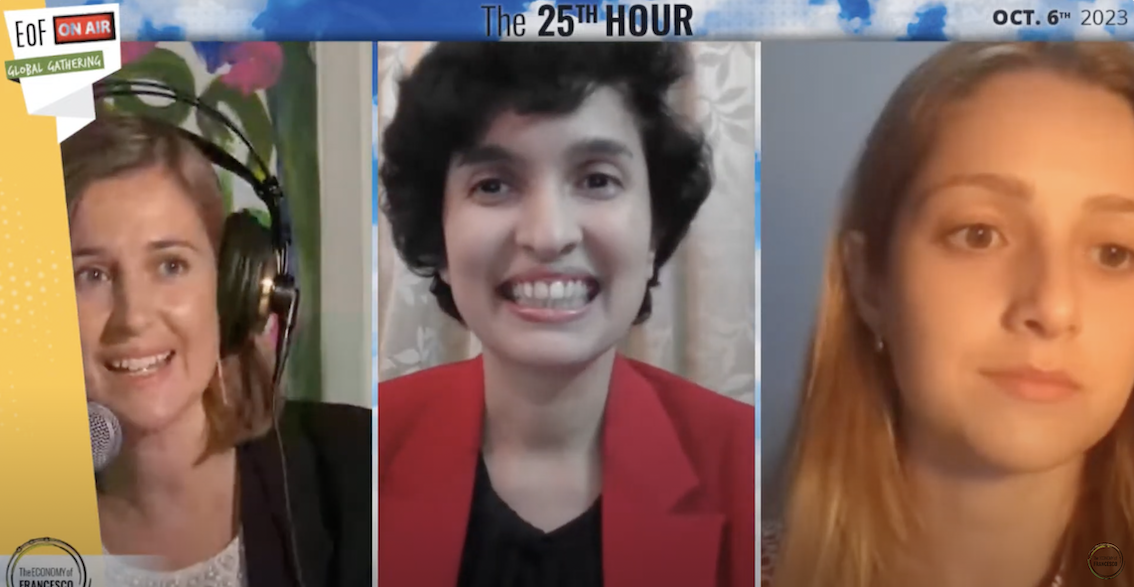
Today we will present you with three among them; imagine them as pillars on which the vision and activity of the EoF Academy is based. Let me start with the first blind spot. In 2023, it is not new or particularly original to criticize the homo oeconomicus, that is, the assumption that human beings are perfectly rational, fully informed, profit-maximizing individuals. And yet, this caricature of man still defines what is ‘mainstream’, or ‘worth inquiring’ in Economics. When in fact, we might pity the homo oeconomicus. The reality is that the homo oeconomicus wants to be recognized as a person living in a community, with desires that can transcend his egocentricity. This person has emotional and spiritual demands for meaning, beauty, truth and justice. The economic ‘person’ also knows that he, she, is not the only subject of economics.
Communities, families, animals, plants, the Earth, all of these actors need to populate our economic inquiry. These are not just footnotes; they are active subjects and not passive objects of our research and inquiry. In our work as EoF Academy researchers, the homo oeconomicus is not the rule; if anything, he is rather the exception. This is why we do research on the commons, on the role of care in economic practices, for too long hidden by contracts and incentives aimed at profit maximization; on the economic problems faced by communities and by marginalized individuals; and many other things that go in this direction. As Pope Francis invites us to go to the periphery of our societies to help the most disadvantaged by the current economic system, so we need to do with research and knowledge in economics and allied areas. We need to go to the peripheries of Economics and bring to the center what has been discarded for no good reason. But let’s move to the second blind spot.
Connected to the division between orthodox and heterodox, center and periphery, we think that for the most part Economics today is conducted in a bubble. This is true in three senses. First, there is an ideological bubble built around the homo economicus. Some topics, some agents, some methodologies are excluded or marginalized simply because they are difficult to quantify, and they escape the iron cage of mainstream economics methodology. This creates a second bubble. Even when it pushes the discipline toward more comprehensive views, much of the economic research has become a dialogue between experts with little or no impact on reality. The third bubble is that of hyper-specialization. We refute the idea that just economists are entitled to do economics. While we recognize that some degree of specialization is necessary, we do believe that economics should be in dialogue with other disciplines: this is why in the EoF Academy we have experts in organization studies, philosophers, sociologists, urbanists, biologists, and many other figures. The EoF Academy is plural, diverse! As EoF academy researchers we do not aim to find a perfect economic theory to replace Economics. We do even think that some parts of Economics should be kept. However, we are interested in blowing up the bubble through research focusing on concrete problems and manifested injustices. We see our role as economists not separated from our role as citizens and human beings. Our knowledge should serve our community, from the family up to the international and global one.
Bad things happen when you separate too much theory and practice, idea and reality. I am here to speak about a pitfall of Economics, but one that had and has terrible consequences in reality. You know that at the core of economic knowledge, there is the idea of mutual advantage. Every economic activity, from the local to the global, should not be a zero-sum game, that is, one wins if the other loses and vice versa. Economics and economy should be the realm of the positive sum game, all the economic actors, at the end of the day, are better off, and they got what they wanted. This is not a pitfall, this is a beautiful idea and the core vocation of Economics. And yet this idea is absent in many economic practices, from the micro to the macro. [As an Indigenous woman,] I ask myself why the wealth and well-being of Western (and non-Western) countries have to come at the expense of indigenous communities, why the happiness and satisfaction of human beings has to come at the expense of the planet, of nature. Why is there just one way of seeing development, industrialization, and work when in the planet there is an incredible variety and biodiversity on how to live on this planet? Concretely, I struggle to understand why the Indigenous knowledge, which has the same dignity as all the others, keep being marginalized in the economic discipline. I am in the EoF Academy to fight against this status quo, to change it, together with my EoF Academy colleagues. My research contributes to bringing the ancestral struggle to contemporary agendas and thus leaving a legacy for future generations of fighting climate change, fighting for the Rights of the Land/Nature and promoting sustainable economies in the territories, as well as deepening the philosophical foundations of indigenous women’s movements that fight for environmental conservation in line with the maintenance of values and cultural practices. I am not alone in this path, I have 45 and more fellows on this travel. But, again, the EoF Academy without the EoF community will not go far away, so we need the effort of everyone. Get in touch, involve yourself, participate. The EoF Academy, and in general the EoF doors, are open.

